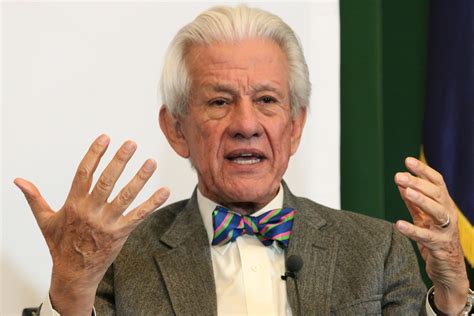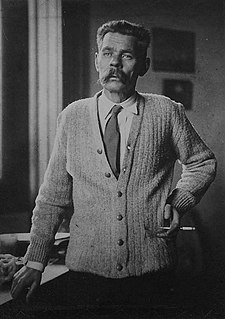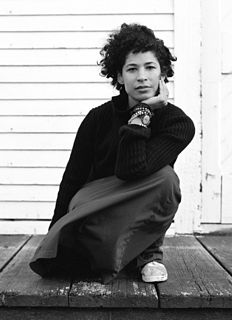A Quote by Robert Rinder
As efficiently as our phones connect us to one another, and as much as we take advantage of that, we must remember that they have the power to alienate us, too.
Related Quotes
Social media puts us inside our phones and our computers and our headphones, and we're not connecting so much with our outside environment. Even when people go to the Grand Canyon they're more concerned about the selfies than actually looking at the canyon. I see it with my own kids - the addiction to needing things fast, never pausing to just see what's around us and connect with our fellow human beings in real time.
Our senses perceive no extreme. Too much sound deafens us; too much light dazzles us; too great distance or proximity hinders ourview. Too great length and too great brevity of discourse tends to obscurity; too much truth is paralyzing.... In short, extremes are for us as though they were not, and we are not within their notice. They escape us, or we them.
You know I think so many of us live outside our bodies. My dream is that people will find a way back home, into their bodies, to connect with the earth, to connect with each other, to connect with the poor, to connect with the broken, to connect with the needy, to connect with people calling out all around us, to connect with the beauty, poetry, the wildness.
We must embrace our differences, even celebrate our diversity. We must glory in the fact that God created each of us as unique human beings. God created us different, but God did not create us for separation. God created us different that we might recognize our need for one another. We must reverence our uniqueness, reverence everything that makes us what we are: our language, our culture, our religious tradition.
... and we are not alone in this slavery. there are millions of others throughout the world, of all colors and races and creeds. this we must remember. there are many of our people who hate the poor of the white race, and they hate us. the people in this town living by the river who work in the mills. people who are almost as much in need as we are ourselves. this hatred is a great evil, and no good can ever come from it... the injustice of need must bring us all together and not separate us. we must remember that we all make the things of this earth of value because of labor.
It seems to me, that this, too, is how memory works. What we remember of what was done to us shapes our view, molds us, sets our stance. But what we remember is past, it no longer exists, and yet we hold on to it, live by it, surrender so much control to it. What do we become when we put down the scripts written by history and memory, when each person before us can be seen free of the cultural or personal narrative we've inherited or devised? When we, ourselves, can taste that freedom.
That's another thing that's depressing: certain attitudes in Congress. They assume that you're dumb; they can take advantage of you being dumb. I find that offensive. It insults our intelligence. They're playing us for dumb and they're being dumb in doing it. But I believe that's gonna change. I think those people, the McConnells, are not helping us at all. They're taking us backward in time.
The most important part of my practice as an artist has been remembering to stay humble. There is so much hurt, so much sorrow, so much pain in the world, and I think when you're born and bred into privilege, it's easier to have a closed perspective on things. But there's this opportunity that's open to all of us to let empathy connect us back to one another.
Our mythology tells us so much about fathers and sons. ... What do we know about mothers and daughters? ... Our power is so oblique, so hidden, so ethereal a matter, that we rarely struggle with our daughters over actual kingdoms or corporate shares. On the other hand, our attractiveness dries as theirs blooms, our journey shortens just as theirs begins. We too must be afraid and awed and amazed that we cannot live forever and that our replacements are eager for their turn, indifferent to our wishes, ready to leave us behind.
































